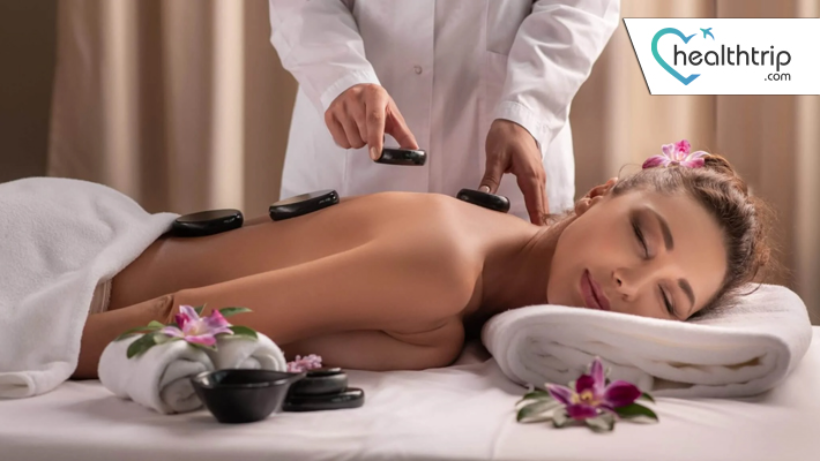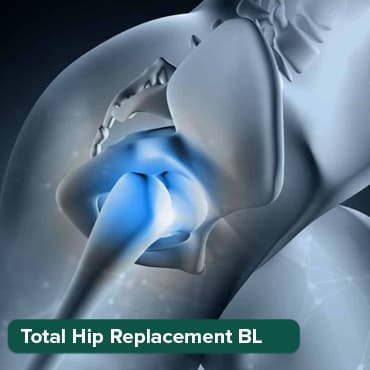
Cultural and Aesthetic Preferences: Tailoring Cosmetic Procedures for Middle Eastern Beauty Standards
27 Sep, 2023
 Healthtrip Team
Healthtrip TeamIntroduction
Beauty standards vary significantly across different cultures, reflecting the unique values and preferences of each society. In the Middle East, a region renowned for its rich history, diverse traditions, and stunning landscapes, beauty standards hold a special place. Middle Eastern beauty standards are deeply rooted in culture, heritage, and aesthetics that have evolved over centuries. In this blog, we will explore the intricacies of Middle Eastern beauty ideals and discuss how cosmetic procedures can be tailored to meet these preferences while respecting individual choices and identities.
A. Middle Eastern Beauty: A Mosaic of Diversity
The Middle East is a vast and diverse region comprising countries such as Saudi Arabia, Iran, Turkey, Egypt, and the United Arab Emirates, each with its distinct cultural heritage. Therefore, Middle Eastern beauty standards are not monolithic but rather encompass a mosaic of diverse ideals. However, some common themes run through these ideals, offering valuable insights for those considering cosmetic procedures.
Transform Your Beauty, Boost Your Confidence
Find the right cosmetic procedure for your needs.

We specialize in a wide range of cosmetic procedures

1. Natural-Looking Enhancements:
Unlike Western beauty ideals, which often celebrate dramatic transformations, Middle Eastern beauty ideals tend to favor subtle enhancements that preserve an individual's natural features. Many Middle Eastern individuals seek cosmetic procedures that refine their existing beauty rather than radically altering their appearance.
2. Emphasis on Symmetry:
Middle Eastern beauty standards place a strong emphasis on facial symmetry. Procedures like rhinoplasty (nose reshaping) and lip fillers are popular choices to achieve this balance.
3. Clear, Radiant Skin:
Clear and radiant skin is universally appreciated in the Middle East. Treatments such as chemical peels and laser therapy are often sought to address skin imperfections and achieve a flawless complexion.
4. Dark, Expressive Eyes:
Dark, expressive eyes are considered particularly alluring. Eyelid surgery (blepharoplasty) and eyelash extensions are among the procedures used to accentuate the eyes.
5. Modesty and Cultural Sensitivity:
Middle Eastern societies often value modesty, and cosmetic procedures should respect these cultural values. Procedures that enhance beauty while maintaining cultural modesty are highly sought after.
B. Tailoring Cosmetic Procedures to Middle Eastern Beauty Standards
When considering cosmetic procedures in the context of Middle Eastern beauty ideals, it's crucial to prioritize the individual's preferences and cultural identity. Here are some key considerations:
Most popular procedures in India
Atrial septal defect
Upto 80% off
90% Rated
Satisfactory

Coronary Angiogram a
Upto 80% off
90% Rated
Satisfactory

Coronary Angiogram C
Upto 80% off
90% Rated
Satisfactory

Liver Transplant
Upto 80% off
90% Rated
Satisfactory

Total Hip Replacemen
Upto 80% off
90% Rated
Satisfactory

1. Consultation and Communication:
Effective communication between the patient and the cosmetic surgeon is paramount. The patient's desires, concerns, and cultural sensitivities must be openly discussed to ensure a personalized approach.
2. Subtlety and Naturalness:
Cosmetic procedures should aim for subtlety and natural-looking results. Overly dramatic changes can be at odds with Middle Eastern beauty ideals.
3. Respecting Facial Features:
Cosmetic surgeons should prioritize the preservation of key facial features while addressing concerns. For example, in rhinoplasty, maintaining ethnic characteristics is important.
4. Customization:
Cosmetic procedures should be customized to each individual's unique needs and goals. What works for one person may not work for another, and respecting these differences is essential.
5. Cultural Sensitivity:
Surgeons should be sensitive to cultural values, ensuring that the procedures align with modesty and cultural norms.
C. Navigating the world of cosmetic procedures
Navigating the world of cosmetic procedures in the context of Middle Eastern beauty standards requires a thoughtful and culturally sensitive approach. As the demand for these procedures continues to rise, it is essential for both patients and practitioners to consider the following points:
1. Choosing a Qualified Practitioner:
Patients should select experienced and board-certified cosmetic surgeons who have expertise in performing procedures that align with Middle Eastern beauty ideals. Research and recommendations from trusted sources can help in this regard.
2. Realistic Expectations:
Managing expectations is crucial. Patients should understand that cosmetic procedures can enhance natural beauty but may not completely transform their appearance. A reputable surgeon will provide a realistic assessment during the consultation.
3. Recovery and Aftercare:
Patients should be aware of the recovery process and adhere to post-procedure instructions diligently. Proper aftercare can significantly impact the final results and minimize complications.
4. Consent and Informed Decisions:
Patients must make informed decisions about their procedures, understanding the risks, benefits, and potential outcomes. Informed consent ensures that individuals are fully aware of what to expect.
5. Continued Cultural Sensitivity:
Cosmetic practitioners should remain sensitive to cultural values, evolving beauty standards, and the preferences of their Middle Eastern patients. This includes accommodating diverse backgrounds, traditions, and identities.
6. Education and Awareness:
Society should continue to foster awareness and education about the diverse nature of Middle Eastern beauty standards. This can help reduce stigma surrounding cosmetic procedures and promote inclusivity.
7. Support and Mental Well-being:
Patients should consider their mental well-being alongside their physical transformation. Seeking support from professionals if needed and maintaining a healthy self-image is vital.
Wellness Treatment
Give yourself the time to relax
Lowest Prices Guaranteed!

Lowest Prices Guaranteed!
